Part 6 of our Beginner’s Guide to Day Trading is finally here! We have a great video prepared for you this week. Get ready to learn everything you need to know about choosing the best online stock broker for your needs. Even if you think you know all there is to know about brokers, you’ll still want to check out this video! While this is part of our beginners trading course, there are a LOT of details about choosing brokers. As a reminder, this is part 6 of an 8-part series. We highly recommend that you watch the other videos in order to fully understand all of the content. Here are the previous lessons:
- Lesson 1 of 8: Intro to Day Trading
- Lesson 2 of 8: Intro to Technical Analysis
- Lesson 3 of 8: Intro to Long Setups
- Lesson 4 of 8: Intro to Short Selling
- Lesson 5 of 8: Intro to Trading Computers
Day Trading Stock Brokers
The stock broker you choose can have a significant impact on your trading, especially as you gain more experience. There are pros and cons to each broker so choosing the best online stock broker is about finding which one meets your personal trading needs. If you are planning on short selling, you will care more about borrows and locates. If you have less than $25,000 in capital, you may want a broker that allows you to bypass the PDT rule. Like most trading tools, brokers are not “one-size-fits-all.” Pay close attention to the video below so you can make an educated choice when picking a broker.
What is Covered in this Video
We cover almost everything you need to know about day trading brokers in this video. Most new traders are focused on going to well-known discount brokers without focusing on a lot of these considerations.
What is a Stock Broker
A stock broker is basically your connection to the stock market. A broker is a licensed and regulated financial firm that facilitates all of your trades for you. These online brokers are what allow you to engage with the stock market from your computer.
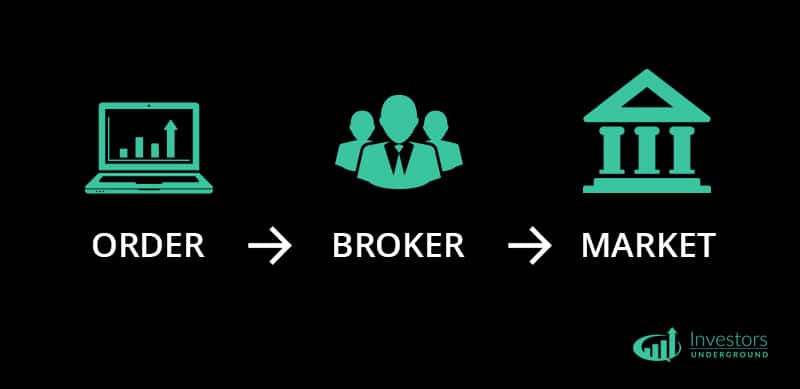
Types of Brokers
There are a variety of different types of stock brokers that are designed to meet the needs of different traders. For example, full service brokers may appeal to investors who are looking to have help managing their portfolios. On the opposite end of the spectrum, there are online discount brokerages that appeal to day traders who are looking to manage their own trades. These online discount brokerages provide better commission structures, access to advanced trading tools, and other features that are beneficial to active traders.
Commission Structures and Fees
All brokers make money by charging a commission on every trade you place. Some brokers charge a flat-rate commission (such as $7.99/trade) while others charge per share (such as $0.005/share). Most new traders start with per-trade pricing, while many veteran traders prefer the benefits of per-share pricing.
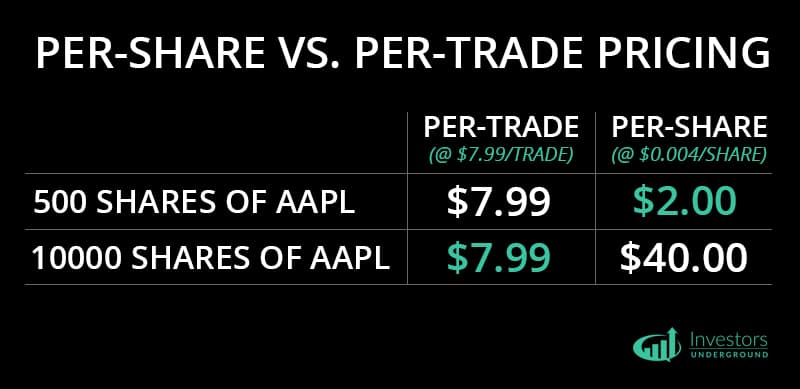
A broker will also make money by charging additional fees for market data, software, margin, etc.
Clearing, Borrows, and Routes
If you are a short seller or plan on shorting a lot of stocks, you will want to focus on the clearing/borrows options a broker has. As you know from our guide to short selling stocks, when you short a stock, you are borrowing shares to be returned at a later point. In order to do this, you need to be able to borrow the shares from your broker. Different brokers will have different availability when it comes to borrows. Additionally, many brokers will use clearing houses that widen the pool of potential borrows. Finding a broker that has access to the borrows you need can have a huge impact on your success as a short seller.
You will also want to focus on the routes a stock broker offers. Access to different routes can give you better liquidity and trade execution speeds.
PDT Rule and How it Relates to Brokers
If you plan on funding your brokerage account with less than $25,000, you will be subject to the Pattern Day Trader rule (PDT Rule). The pattern day trader rule states that traders with less than $25,000 can place a maximum of 3 day trades in a 5 day period. A “day trade” is defined as a round-trip, where you enter and exit a position within the same day. While this rule is designed to protect new traders, it can also be very limiting. If you will be funding your account with less than $25,000, as many new traders do, you have a few options.
First, and most obviously, you can trade within the limitations of the PDT rule. This means you will have to be very selective when choosing day trades, which isn’t necessarily a bad thing for new traders. Second, you could focus more on swing trades where you hold stocks for more than a day at a time. Lastly, you can explore some brokers that allow you to bypass the PDT rule. A few of these brokers are discussed in this video.
Broker Reviews
In the next segment of this video course, we reviews some of the pros and cons of some of the most popular online brokerages. We cover ETRADE, CenterPoint, SpeedTrader, SureTrader, Robin Hood and more.
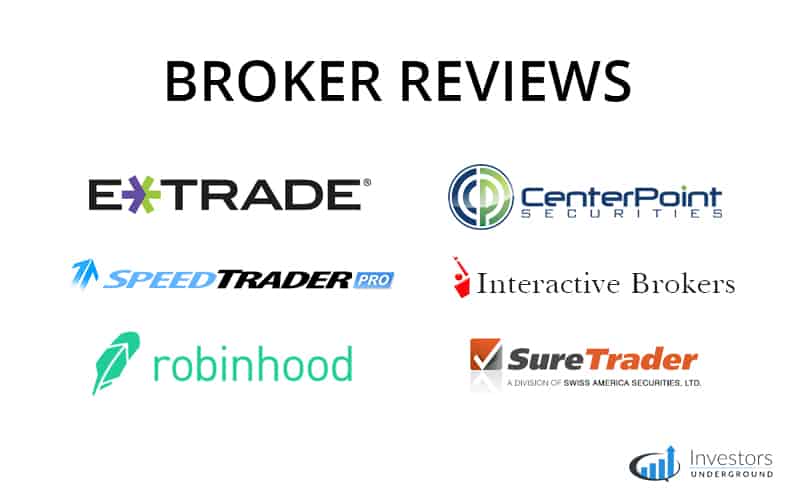
Trading Software and Platforms
The last consideration when choosing a trading broker is the tools they have available. You will want to make sure your broker has access to solid trading platforms, charting software, and real-time level 2. Some brokers will provide software access free-of-charge, while others will have an additional fee. As you become more active with your trading, you will rely on your software more and more. It’s important to make sure you have access to all of the data you need. Last week, we spoke in depth about the different features of trading softwares. Make sure the broker you choose will give you access to the software you’d like to use.
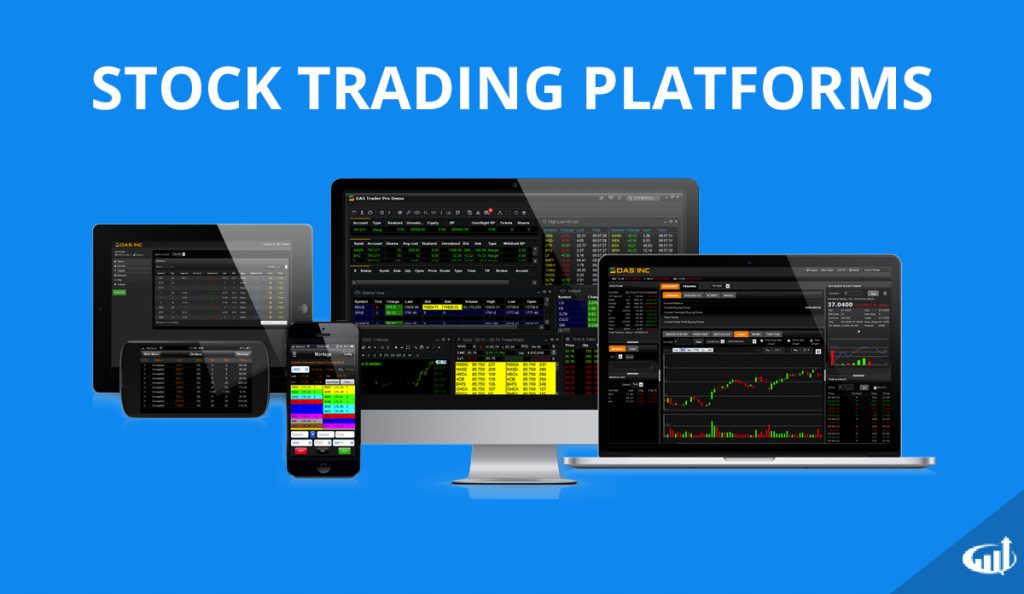


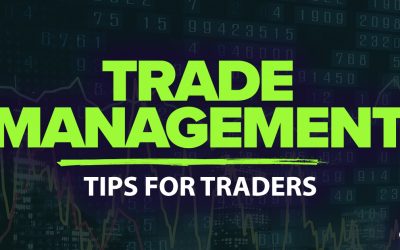


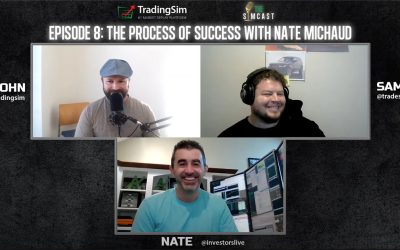


Have you thought to include tradestation? If so, may I write up an article on it for IU?
Love the broker reviews